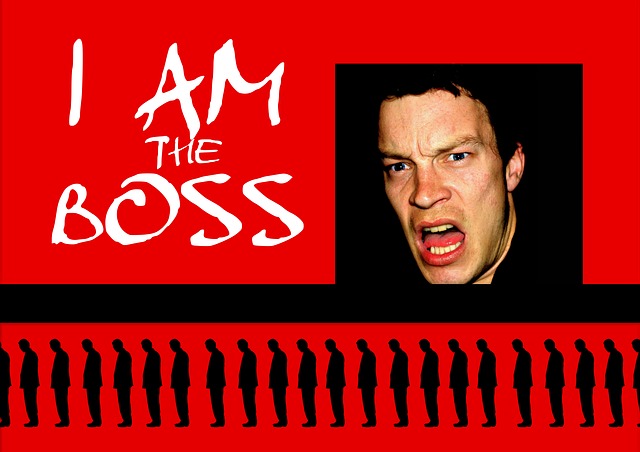The topic of introversion is particularly important in the IT industry, which seems to attract many people with such mindset. In this article I am reviewing ‘the book that started the Quiet Revolution’ (or at least that’s how it’s been advertised). Is it really that powerful? Read on to find out.
The Extrovert Ideal Considered Harmful
Susan Cain starts her book – ‘Quiet: The Power of Introverts in a World That Can’t Stop Talking’ – with a brave attack on the icons of modern self-help techniques and business approaches, like Anthony Robbins, Dale Carnegie and the Harvard Business School. While the personality model promoted by them has dominated the Western world, she argues that it’s actually harmful for a large part of our society. The ideal of a dynamic, open, outgoing individual, attracting others’ attention, with great presentation skills, showing a lot of ‘energy’ and raising many ideas, is not natural for at least one third of the world’s population.
Those people, who we call ‘introverts’ for the lack of a better term, seem to prefer thinking before acting, calm behavior, limited amount of social interactions, careful decision making and working individually rather than in groups. On the other hand, they lead a very rich ‘internal’ life and usually have great imagination. Because of all these traits, introverts are often seen as shy, unpleasant, sad, or even cynical and unhappy. In most cases, this is far from true, yet extroverts find it very difficult to understand.

Why are you so sad today?
– is one of typical, frustrating questions that introverts would repeatedly hear from family or co-workers. Many of them give in and try to comply with the established standards of behavior. They would fake enjoying interactions with people, appearing open and expressive – just to be more ‘successful’.
Susan claims that such forced behavior is not necessary, and many famous people achieved something spectacular not just despite their introverted nature – but even thanks to it. Warren Buffett, Bill Gates, Gandhi, Charles Darwin, Isaac Newton – she gives many examples of very successful people who demonstrated behaviors typical for introverts on a daily basis.
Introverts Are Not ‘Cool’
The author tries to understand the reasons behind such behaviors. One lead is that many introverts are also oversensitive (in psychological sense). It means they would feel stronger emotions in reaction to a beautiful piece of music or a poem, but also to explicit violence and ugliness, than an average extrovert. They also tend to be meticulous and conscientious. That’s why they feel more nervous in situations like meeting new people or presenting in front of a large audience.
You’ve got to come over to the party tonight – you will relax, I promise.
After digging deeper and reviewing some more research, it turned out that babies with highly reactive behaviors (e.g. squealing with delight when seeing colorful toys) tend to grow into rather careful and serious teenagers, which seems counter-intuitive. Further investigation suggested that such behavior is tied to having an exceptionally sensitive amygdala. The more reactive it is, the faster the baby’s heartbeat will be when experiencing new stimulus, the more cortisol will appear in its saliva, and so on. For a grown-up, who tries to control reactions, such response from the nervous system will mean more stress, and thus an incentive to avoid confronting the unknown.
Another interesting observation is that extroverts sweat less than introverts and therefore seem ‘cooler to touch’. Some people think that it may be the origin of the saying ‘be cool’. If you think that’s a positive thing, consider that the ‘coolest’ people in this context are sociopaths, who are the least reactive and thus don’t care or feel guilty about their deeds…
Why do you always have to be so anti-social? No excuses this time!
In general, the balance of introversion and extroversion for each of us seems to result from the ‘fight’ happening between our ‘old brain’ (the part coming from our evolutionary ancestors, primitive mammals – eat more, take pleasure, seek reward, take more risks) and the neocortex (think, plan, decide, be careful). Highly reactive people are more susceptible to the guidance of the latter, while extroverts’ behaviors are more frequently driven by the former.
Who needs introverts after all?
Susan claims that the world would be a much better place if we stopped pushing those people into the ‘standard’ model of behavior (the Extrovert Ideal). She suggests that some past accidents and tragedies might have been avoided if we had more introverts as decision makers, for example the global financial crisis of 2008. Wall Street was dominated by people with specific personality, who pushed away more careful people pointing to disturbing statistics.
Society doesn’t seem to trust introverts. They are too quiet, they avoid interactions, maybe hiding something bad or deeply hating humanity… That’s why it’s more probable for an extrovert to have a successful career, get promoted or sell a product.
However, this approach is gradually changing. Not only because of this knowledge being spread, but also due to more and more great companies and products being created by introverted minds, making them famous, rich and powerful. The software industry is full of such stories and this trend shall continue in the coming decades. The growing virtual world is the perfect space for introverts to show their abilities without negative stimulus for their brains.
Summary
I hope this article got you interested in this wide and important topic. I can certainly recommend Susan Cain’s book, as it contains much more detailed information and can prove very helpful not just at work, but in your whole life – regardless of where you are on the introvert-extrovert scale.
In the next post, I’m going to write about some practical implications of this concept for us as IT leaders, and what we can do to allow our introverted employees to reveal their full potential.





